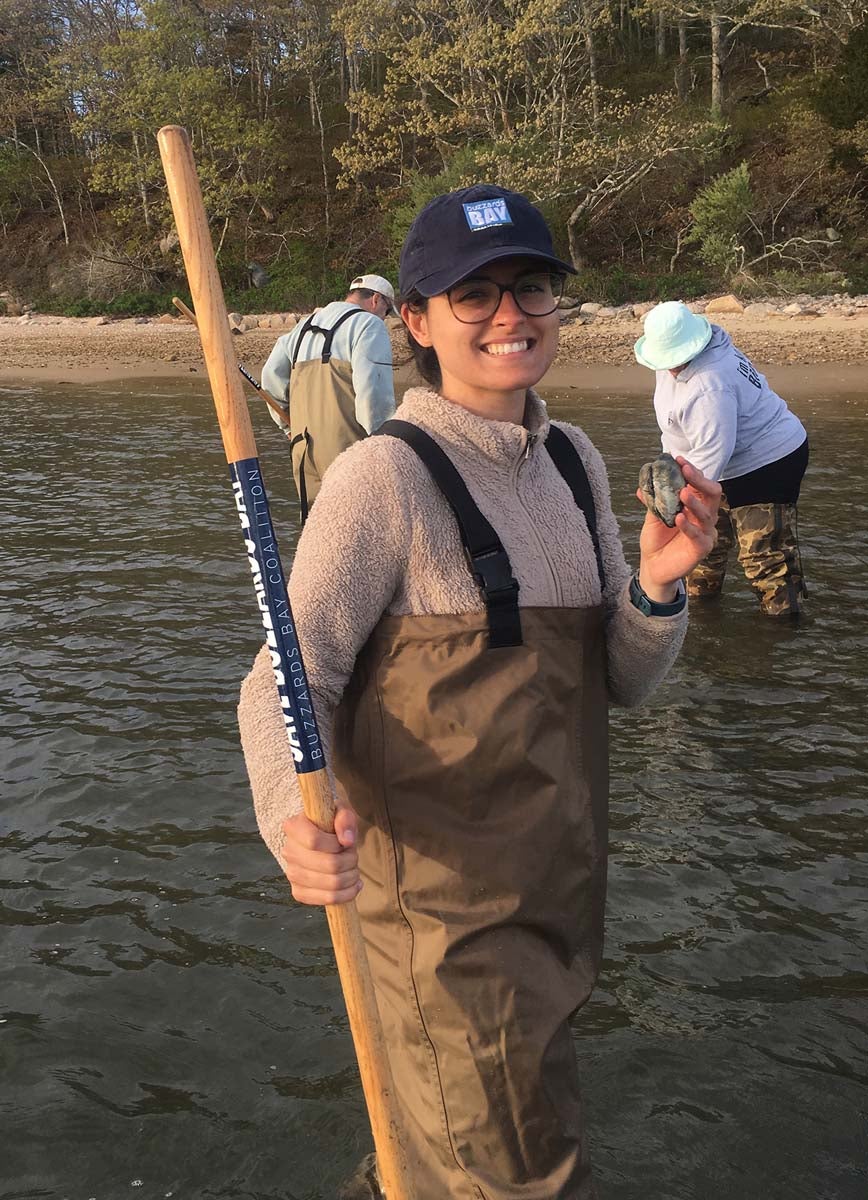May 3, 2021
Nina Santos might be graduating with a master’s degree in oceanography from the University of Rhode Island’s Graduate School of Oceanography this May, but her enthusiasm for the marine sciences and the ocean traces all the way back to her childhood.
“My father was a scallop fisherman my entire life,” said Santos. “I’ve seen that environment all my life and that’s how I got interested in oceanography and biology.”
Following the urge to share her passion with the world, the New Bedford native conducted educational programs for families and students during and after college to teach them about the environment.
“Kids these days are not as connected to the environment as I was or our parents were,” Santos said. “I wanted to tell them why they need to care about it and how they can do it. Through that, I realized I have a passion for education but I wanted to explore research as well and wanted to connect the two.”
Santos credits the faculty and unique research programs and opportunities at the Graduate School of Oceanography for making her want to pursue a degree at URI.
“I learned a lot being at the GSO; one of my accomplishments is just being around these faculty members to learn from them and become a part of the research community,” Santos said.
One of Santos’ greatest achievements and memories at URI was getting the opportunity to attend various local and national scientific conferences.
“I went to the National Ocean Sciences meeting in San Diego last spring right before the COVID-19 lockdown,” Santos said. “I’ve never had any research experience before starting my M.S. at GSO. Being in a room full of great ideas and incredible minds who were passionate about the same thing as I was one of the greatest experiences of my life. To step into that world, soaking it all in, and creating a goal in my head of what I should be reaching for was amazing.”
Working with her adviser, Assistant Professor of Oceanography Kelton McMahon, Santos’ master’s thesis research paper examines the competition between two important fisheries species in Narragansett Bay and southern Rhode Island — black sea bass, which are originally from farther south, and the Atlantic cod, which are native to the area.
“The black sea bass are increasing in Rhode Island waters and the cod are cold water fish that are already affected easily by the warming of the ocean,” Santos said. “My research focuses on what it would mean to these species if warm-water species like the sea bass become more abundant in their range: how much overlap there was between their diets, and what resources they were using in that area.”
In January, Santos started her doctorate in ecological sciences at the University of Maryland. In the future, she wants to explore the connections between science and policy.
“I want to make sure that policymakers know what science has to offer so they can try to make better and informed decisions for the environment,” she said. “Working for the Environmental Protection Agency, National Oceanic and Atmospheric Administration, or another government agency would be my dream job.”
One of her fondest memories of URI is time spent at Narragansett Town Beach, but she is grateful to the URI community for the incredible journey she has experienced.
“I have been to various events and even participated in the Global Climate Strike,” she said. “What I will miss the most is the great student body we have that cares about many important issues. That’s what we need more of today.”

